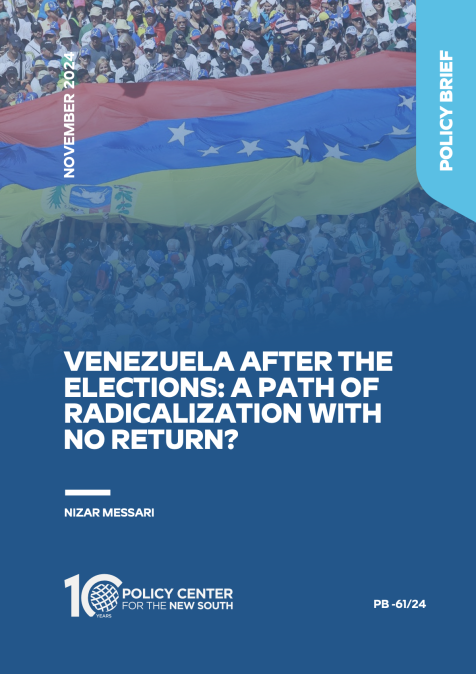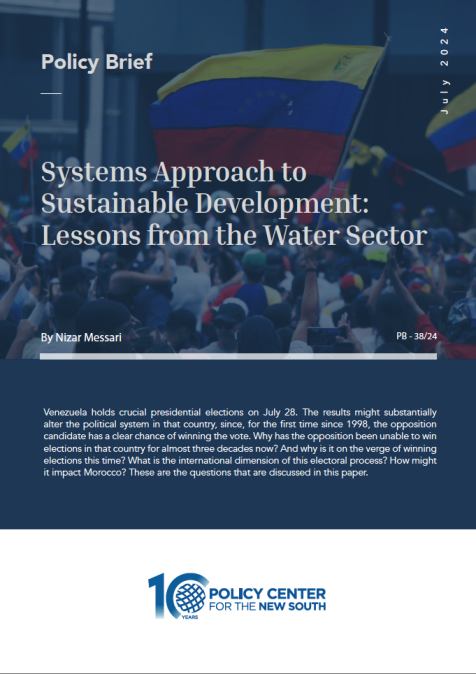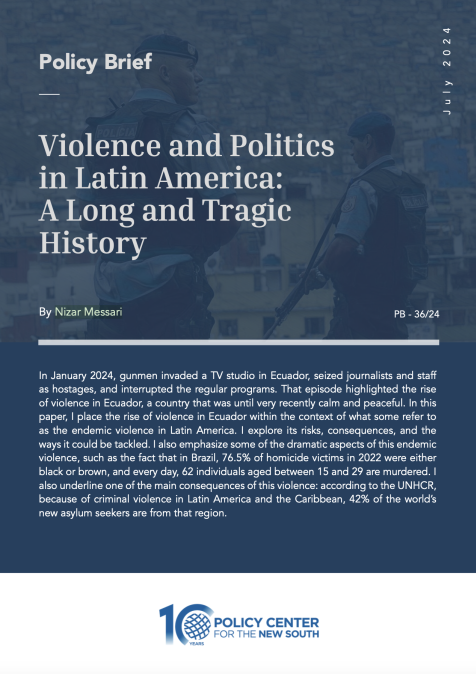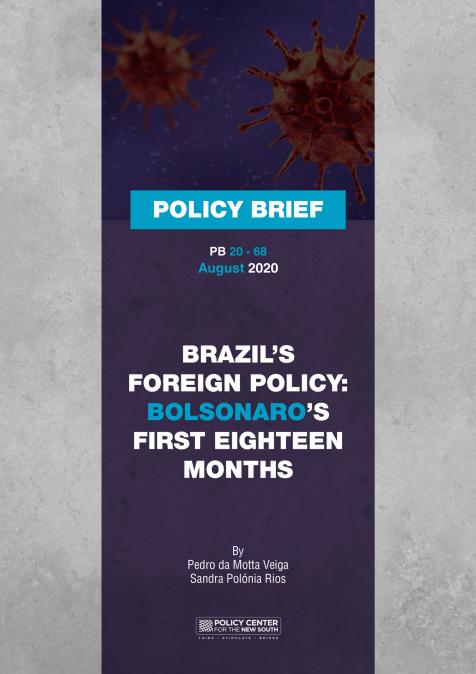Publications /
Opinion
The cooperation between Brazil and Morocco dates back to the 19th century, when Moroccan migrants came to Brazil attracted by the then booming exploration of rubber in the Amazon rainforest. In 1861, the Brazilian government opened its first consulate in Tangier. But it was only since 1961, with the Moroccan independence, that the bilateral relations began to diversify.
At the political sphere, there has been a fluid dialogue, driven by convergent views on several issues related to the perceptions and roles of both countries in the international arena. Brazil and Morocco share the same development aspirations, they both have deep roots in Africa and they have the Atlantic as a common neighbor.
In the economic field, despite the sustained growth in the bilateral trade observed at the beginning of the 21st century, Moroccan – Brazilian economic relations are still going through what could be called the ‘shallow’ phase of relations between two middle-income countries.
Trade is concentrated in a few products – those where both countries enjoy long lasting and natural comparative advantages – and faces strong difficulties to diversify in terms of products and to upgrade towards more complex models of linkages (e.g. value chain model).
Despite its concentration, the evolution of bilateral trade during this century has resulted in a significant increase in the share of the Brazilian market as a destination for Moroccan exports - currently around 5.5%. On the other hand, the share of Brazilian products in Moroccan imports has remained relatively stable, oscillating between 1.5% and 2.0%.
A significant part of the bilateral trade between Brazil and Morocco is associated with the agricultural productive chain, involving the export of agricultural raw materials by Morocco and the export of food products by Brazil. Intra-industry trade is not very expressive in bilateral economic relations.
At the investment level, bilateral flows and stocks are almost irrelevant. Brazil has not been able to seize the opportunities opened by the recent industrial development of Morocco and its diversified set of (industrial) policies and incentives.
Brazil and Morocco share a common aspiration: the development of diversified and sophisticated industrial sectors. To this end, both countries have been implementing a wide set of industrial and trade policies that have relevant impacts on market access conditions for bilateral trade.
The fragmentation of the production process and the consolidation of global value chains (GVCs) in many sectors have been changing the map of trade and investment flows. Capturing opportunities created by this phenomenon has been one of the main goals driving the implementation of trade and industrial policies in many countries.
Brazil and Morocco adopted different approaches towards their respective insertions in the global value chains during the last ten years. While Brazil implemented a wide range of industrial policy mechanisms aimed at attracting investments to the consolidation of domestic production chains, Morocco sought to develop specialization in some sectors and activities, resulting in a more effective participation in GVCs.
The differences in the size and structure of the Moroccan and Brazilian economies make any comparison between the two countries almost impossible. However, the assessment of their economic structures and of their foreign economic relations allows the conclusion that complementarities in their profiles create opportunities for economic integration that are not being seized by both countries.
With this perception in mind, the Policy Center for the New South and CINDES – Centro de Estudos de Integração e Desenvolvimento (Center of Studies on Integration and Development) have been cooperating, since 2016, to develop studies, research and proposals aiming at contributing to the enhancement of bilateral economic relations. Furthermore, the joint work of the two think tanks includes the devise of opportunities for triangular cooperation with African countries, and the identification of lessons and exchange of best practices in the deployment of development policies.
The research developed so far includes, among other topics: (i) the analysis of Morocco-Brazil economic relations; (ii) The role of Morocco in Brazil-Africa economic relations; (III) Brazil’s experience with industrial policies: the dos and don’ts for middle-income African countries; (iv) the experience of MERCOSUL as a regional integration process and its lessons for developing countries; (v) China’s FDI in Brazil: trends and policy debate etc.
The findings, so far, point to existing opportunities for the consolidation of market shares that have already been achieved and for the development of intra-industry trade in industrial sectors implemented in the two countries. There are also opportunities which reflect complementarity and the asymmetries between productive structures and between the foreign trade portfolio of Brazil and Morocco.
In this context, the negotiation of a bilateral free trade agreement that removes the high tariff protection in both countries and that assures exporters market access conditions similar to the ones granted to other suppliers by preferential trade agreements in force is crucial to allow the seizing of the opportunities to expand bilateral trade between Brazil and Morocco.
In 2008, Brazilian government established a consultation process with the private sector in order to identify a list of products that could be of Brazilian interest to be negotiated in this agreement. Nevertheless, the result of this dialogue was never publicized and the negotiations did not advance.
Until recently, the management of bilateral economic relations by the governments seemed to follow a ‘business as usual’ model, as the timid efforts to initiate a discussion on a trade agreement were left aside in the middle of the previous decade. In the beginning of 2016, both sides began to signalize renewed interest in promoting bilateral economic ties. It seems to be the right moment to deepen the understanding of the existing opportunities and barriers to trade and investment between the two countries.
The new Brazilian government seems to have renewed interest in a Brazil-Morocco bilateral partnership. In an article published on May 8, 2019, by the Brazilian Minister of Foreign Affairs, in which he assessed the first 100 days of the new foreign policy in Brazil, he mentions that “we maintained or will maintain soon productive dialogues with Germany, Saudi Arabia, Hungary, Italy, Morocco, Nigeria, New Zealand, Switzerland, among other, with which we have already identified new ideas and effective cooperation projects to the Brazilian growth”.
The Policy Center for the New South and CINDES will continue to work together to the strengthening of bilateral economic relations and cooperation.
The opinions expressed in this blog post are the views of the authors.









